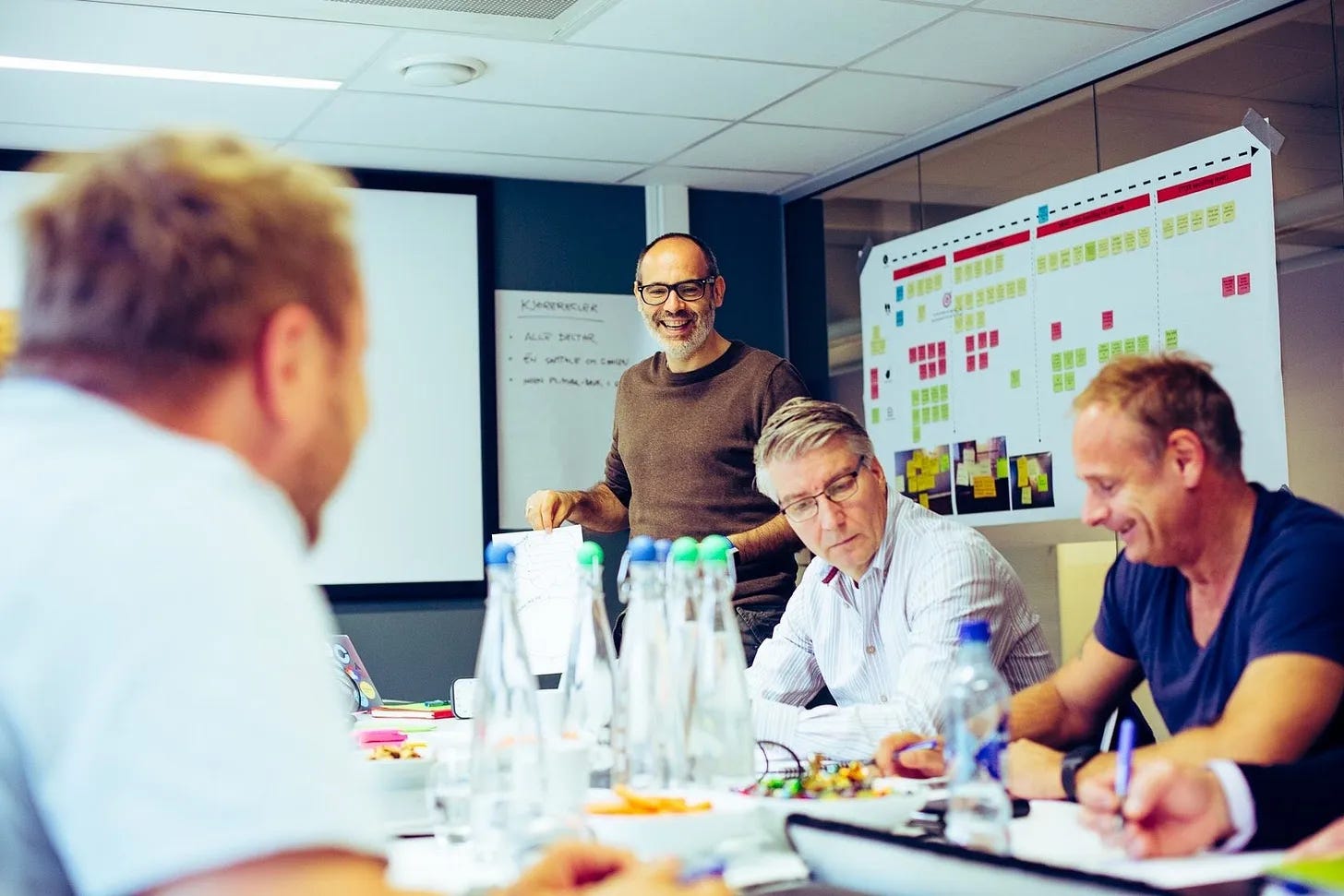When Facilitation Goes Completely Wrong
And What You Can Do About It

Let’s be honest: facilitation doesn’t always go according to plan.
No matter how experienced you are, there will be workshops that spiral out of control. The group gets stuck. The energy dies. Someone dominates the conversation. Tensions rise. Key people check out. Or worse: the client walks away feeling disappointed or even distrustful.
It happens.
The important question is not if things will go wrong, but when they do, how do you handle it?
Here’s a guide to managing workshop failure across three critical stages: before, during, and after.
BEFORE: Design for Prevention
A bad workshop is often the result of poor preparation, not poor facilitation. You can’t control everything in the room, but you can reduce the risk dramatically by focusing on the essentials.
1. Align with stakeholders.
Misaligned expectations are the root of many workshop failures. Clarify goals, desired outcomes, participant roles, and red lines. Ask: “What would success look like and what would make this a disaster?”
2. Know the group.
If you’re walking into a room full of strangers, you’re flying blind. Talk to a few participants in advance. Understand power dynamics, sensitivities, and prior baggage. Map the people, not just the agenda.
3. Stress-test your agenda.
Don’t just build an agenda, challenge it. Ask yourself: Will this flow help them reach the outcome? What if they don’t want to participate? What if we run out of time? Prepare Plan B (and C).
4. Co-create, when possible.
Designing with, not just for, the client or participants builds ownership and reduces the risk of pushback in the room. They’re more likely to buy into the process if they helped shape it.
DURING: Control, Adapt, Recover
When things start to fall apart mid-workshop, your job is to stay grounded and avoid panic. You’re not just running a process, you’re holding space.
1. Acknowledge what’s happening.
Name the elephant in the room. If energy is low or people seem frustrated, say it. “I’m sensing that something’s off… Would anyone like to reflect on where we are right now?” Naming tension can release it.
2. Pause and reframe.
If a method isn’t working or people are disengaged, stop. Don’t be afraid to call a 5-minute break, talk to your client or allies, and reframe the session. Agility is a superpower.
3. Protect psychological safety.
If someone gets attacked or shut down, intervene. Set boundaries respectfully but firmly. Remind the group of ground rules, or create them on the spot if needed.
4. Use your allies.
Every room has informal leaders. Engage them. Pull them aside during a break, get their perspective, and ask for help in steering the group back on track.
5. Focus on one thing.
If the whole plan is falling apart, don’t try to salvage everything. Ask: “What is the one outcome we can realistically align around before we leave today?” Then work toward that.
AFTER: Repair and Rebuild Trust
A failed workshop doesn’t have to lead to a failed relationship. What matters most is how you handle the aftermath.
1. Take ownership.
If something didn’t work, don’t get defensive. Reach out to the client or group lead quickly. Say, “Here’s what I saw, here’s what I think went wrong, and here’s what I want to improve.”
2. Collect feedback.
Ask for it, even if it hurts. A short anonymous survey or a few honest conversations can give you insight into what people really experienced.
3. Offer a follow-up.
Sometimes, a short follow-up session or a clarifying deliverable can fix what went wrong. Show that you care about outcomes, not just running a session.
4. Reflect and learn.
As facilitators, we’re never done learning. Debrief with a colleague or write your own retrospective. What would you do differently next time?
Final Thought
Facilitation is not about being perfect. It’s about being present, responsive, and humble. Sometimes your role isn’t to guide a smooth journey, it’s to help a group navigate the turbulence with dignity.
When things go wrong, it’s not the end of your credibility.
It’s the beginning of your resilience.
I hope this post, made sense and you found it useful.
If “HELL YEAH!”, please like it and share it in social media so more people can get can also benefit from it :-)
I would also appreciate if you subscribe, and give some comments here if you wonder something and want to give me some feedback. I would love to read your input here!
If you have a Substack yourself and like my content, I would love for you to recommend “Facili-station” to your subscribers.
Have a nice one!!
Looking for a coach?
In service of those who serve others.
Leadership is hard. Whether you're stepping into management or leading an entire organization, the challenges are real: confusing, overwhelming, and sometimes isolating.
I offer tailored 1:1 or team coaching to help you move forward with clarity and confidence. I’ve walked in your shoes, and I’ll work with you to build the resilience and relational skills needed to lead well, beyond just the work.
If this sounds like what you need, let’s talk. Email me at jose@facilistation.com to book a free discovery call. Because coaching isn’t expensive. Staying stuck is.
Looking for a facilitator and workshop designer?
If you need a workshop designer and facilitator to help you or your team to solve challenges, find solutions, make decisions, and to be more effective an perform better and faster, or a trainer to teach your team on how do this, please contact me at jose@facilistation.com
My workshops are designed to provide the structure required to quickly align and move forward with a plan or idea so you can reclaim time, energy and headspace.


